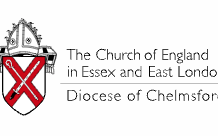The 2022 Lambeth Conference has published ten draft ‘Calls’ that will form the backbone of the Conference proceedings. We, the bishops on the Next Steps Group that is overseeing the Church of England’s Living in Love and Faith process on identity, sexuality, relationships and marriage, had first sight of the Calls on the day of their publication, the 20th July 2022. We understand that Anglican Communion bishops from around the world will be invited to discuss and reflect on each Call and how each might be received and applied in their home context.
Importantly, we note that the work of the Conference will give bishops the opportunity to contribute and commit to the Calls or to ask that further work be done on the Call. In line with the Call on Anglican identity, the Calls allow for differences of views and the rights of autonomy within the Anglican Communion, recognising that Anglicans seek faithfulness to God in richly diverse cultures, distinct human experiences, and deep disagreements.
One of the Calls relates to human dignity. It calls on bishops to take redemptive action against the abuses of power that are the legacy of colonialism; to address economic injustices that unfairly disadvantage the world’s poorest communities; and it warns about the threat to human dignity of prejudice on the basis of gender and sexuality.
The Church of England is just one voice among 42 member churches of the Anglican Communion. However, it has within it some of the conflicts and disagreements surrounding questions of identity and sexuality that influence the Communion’s discussions and deliberations about these matters and which the call acknowledges. That is why, in the Church of England, the Call’s affirmation of the Lambeth Resolution 1.10 (1998) that same sex unions cannot be legitimised or blessed, will be deeply troubling and painful for some whilst offering welcome reassurance to others. It is important, therefore, that the Call also affirms the safeguarding of human dignity through deepening dialogue about profound disagreements.
It is within this spirit – of respecting the dignity of every human being by creating space for dialogue – that Living in Love and Faith (LLF) continues its path towards discernment and decision-making regarding questions of identity, sexuality and marriage. Through the LLF process of learning together, listening to one another and to God, the Church of England will draw its own conclusions in early 2023. We hope it can bring its learning and reflections to the Anglican Communion and the outcomes of the Conference’s call on human dignity.
The LLF process offers an example of how human dignity and Christian love are affirmed and strengthened when differences and disagreements are approached through churchwide learning together, listening to one another and to God. The LLF process favours dialogue over debate and encourages the people of God to understand what it means for church communities to become safer spaces in which matters of deep personal conviction and experience can be sensitively shared and better understood, and in which God’s voice can be heard.
The LLF process is a gift that the Church of England offers to the Anglican Communion as it responds to the Call for the Anglican Consultative Council to expand its work on Gender Justice to ‘promote provincial and inter-provincial vision and practices toward human dignity with attention not only to gender but also to sexuality.’










